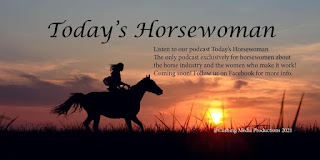By Damyanti Biswas
As an author, whether
you are trad or self-published, the bulk of book promotion now falls on your shoulders.
One aspect of book
promotion is a giveaway. A giveaway tends to be popular because it lets readers
have a shot at snagging a book for free, or even win some additional swag. Not
necessarily because most readers cannot buy books or depend on free books for
their reading: a giveaway usually turns into a community event, bringing
readers together while a book is given away.
The more entertaining a
giveaway, higher its chances of being successful. Yes, giving away a kindle or expensive
customized swag like tote bags, t-shirts, mugs, candles etc can be the ticket
to drawing a larger audience. Big publishers give away such items for their
lead titles.
I have found though
that it is possible to get readers excited about far lesser priced items that
suit a typical author’s budget.
The ad copy you write in order to announce a
giveaway or the video you use, can often pique a reader’s interest. Giveaways
also tend to be platform-specific and what works for one platform may not
necessarily work for another.
With the information
below, I have tried to collate giveaway ideas on various platforms, and what
you can do to promote them better. Here are a few platforms on which to do
giveaways:
Goodreads:
Goodreads isn’t the
world’s best-run site, but it IS a behemoth. Readers still flock there, and
entering your book for a giveaway will attract a lot of readers. You can give
away kindle or paperbacks, and the fees are steep.
My publisher invests
in the giveaway, and every time someone enters, it puts the book on the Want to
read list of the entrant. Their followers are notified, and if those followers
trust the entrant’s opinion, they might add your book to their Want-to-Reads.
This happened with my book The Blue Bar, and I did see a direct correlation
between pre-order numbers and want-to-reads.
Storygraph:
If the Goodreads giveaways look like too big an investment, try . It is a smaller but better run site and more readers are flocking to it each day. The giveaways are cheaper, but they also draw a smaller audience. I plan to experiment with this platform soon but have heard good results from author friends who have tried it.
Instagram:
On Instagram, I've had
the best results with book giveaways when a bookstagrammer hosts it instead of
me. The hosts have a minimal investment in terms of just creating a graphic and
making a post, and the giveaway usually asks for a Follow for them. I take care
of the shipping costs and the ARC. It doesn’t directly lead to higher sales but
it increases the visibility of the book cover. I also use it to thank the
authors who have been kind enough to blurb my book. In that case I ask for a Follow
for the host , for me, and the wonderful author who has blurbed my book.
This is simpler for me
because my publisher puts my ARC on Netgalley, and also sends out physical ARCs.
If you have your book on a site like Book Funnel, it is possible to give away
an E-copy and thus reduce the investment.
Bookstagrammers who
like your work can be a very supportive community: all you have to do is
interact with them professionally over a longer period and genuinely engage
with their posts. So many from my bookstagram family have helped me with cover
reveals and reviews for the Blue Mumbai books. They know that their
relationship with me will remain unaffected whether their review is positive or
not.
Facebook:
On Facebook, giveaways
work best in readers’ groups. Not many such groups allow giveaways by authors but the
few that do are very supportive and helpful. I've had many of the readers in
these groups become super fans who have followed me all across my social media
and reviewed all my books. Depending on your genre, here are a few groups that
you can explore: Tattered Page Book Club, Psychological Thriller readers,
Psychological Thriller Authors and Readers Unite, The Booklounge for Readers
and Authors. If you develop relationships with the admins of these groups and
interact throughout, you will receive amazing support.
Newsletter:
A newsletter outlasts
all social media. If the growth of your newsletter is organic (like mine has
been) even a small engaged audience can do wonders in terms of reviews and spreading
the word. I try and do giveaways as often as possible on my newsletter in order
to keep my audience more engaged and invested than ever.
Blog:
I don't run giveaways
on my blog but some of the big reader blogs can be very effective in putting
your book in front of a larger audience. Most of these blogs work with large publishers
but if you make good relationships with other bloggers they might let you do a
giveaway in conjunction with a guest posts. Research who the big readers in
your genre are, and if they have established blogs. Some of them also tend to
run very successful book clubs.
Twitter (X):
This platform is down
but not yet out. Giveaways by book reviewers often gain hundreds of entries and
put the book cover in front of a large audience. I'm giving away a few copies
of my ARC's via book bloggers and the response has been tremendous.
---
These are just a few
of the platforms you can explore in order to spread the word about your book.
To make a book
giveaway successful:
1. Having a professionally made and striking book cover is absolutely crucial to the success of these giveaways. Readers do indeed judge a book by its cover.
2. Don’t make the ask too big for the reader to enter the giveaway: usually a few likes, shares and follows do the trick. Make sure to ask an interaction question which will lead to more comments, or to tag/ post in stories to increase reach.
3. The giveaways may not always lead to reviews—sometimes they do, at others they don’t, but having your book cover seen by a lot of readers is very worthwhile.
4. Interaction with readers is key. A giveaway is not a make-it, shut-it, forget-it deal—readers are there as much for the interaction and engagement as they are for the freebie.
5.
Don’t lose
sight of your voice as a writer—the more the reader sense your presence behind
your giveaway posts, the more engaged they’re likely to be.
When a reader
interacts with your book on one social media they are shown more advertisements
of your book by Amazon and Facebook. If your publisher is placing ads, then
doing these giveaways will reinforce these book covers in the minds of the
reader.
Marketing wisdom says
that a consumer needs to see a product at least seven times before making the
decision to purchase it. Book giveaways help in providing that visibility and
repetition to your book and your author brand. All reviews are a bonus.
You can get quite
creative about doing book giveaways on a smaller budget: all you'll need is to
build your author platform: stable relationships with readers and book
reviewers will create willingness to champion your book.
Have you participated in book giveaways on other platforms? What has experience with book giveaways been like?
BIO:
Damyanti is currently based in
Singapore. Her short fiction has been published at Smokelong, Ambit, Litro,
Puerto del Sol, among others, and she's the coeditor of The Forge literary magazine.
She's the author of You Beneath Your Skin, an Amazon-bestselling crime novel, which has been optioned for screens by Endemol Shine. Her next crime novel, The Blue Bar was published by Thomas & Mercer USA. It received a starred review from Publishers Weekly, and Goodreads named it one of 2023's Most Anticipated Mysteries & Thrillers. The sequel, The Blue Monsoon, is out on 24th Oct, 2023.
Her popular blog Daily (w)rite, where she speaks about the writing life and interviews publishing professionals turned 15 this year. Find out all about her and her books here.
ABOUT THE BLUE MONSOON:







